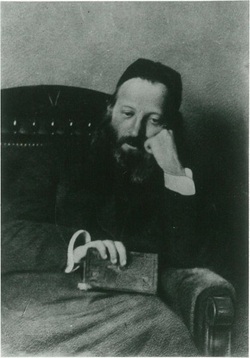- Home
- Teachings (1)
- Teachings (2)
- Teachings (3)
-
Rav Kook's Journals
- From My Inner Chambers
- Thirst for the Living God
- The Pangs of the Soul
- Yearning to Speak a Word
- Singer of the Song of Infinity
- Wellspring of Holiness
- I Take Heed
- To Know Each of Your Secrets
- Great is My Desire
- To Serve God
- To Return to God
- Land of Israel
- My Love is Great
- Listen to Me, My People
- Birth Pangs of Redemption
- New Translations
- Lights of Teshuvah
- About the Translator
- Contact Me
Young People

Teaching the Children
We must make it easy for our children to explicitly find in all areas of life the exalted ideals that come from keeping the Torah and its commandments.
The Torah should not be “the word of the Lord, law by law, line by line, a little here, a little there” (Isaiah 28:13). The Torah should be a commandment that is all-inclusive and living, established and faithful—that brings the light of life and the halo of glory to each of our children and to the whole of our people.
Our faith must be filled with wisdom and knowledge.
Our awe must contain glory and honor of the God of Israel, of God Who is awesome in beauty.
This is one with the greatness of life and the light of joy demanded from each individual whose soul dwells in that light, and from the entire nation that is strong and desires life.
“Children of Zion, be glad; rejoice in the Lord your God” (from Isaiah 33:6).
This is the most holy service of Torah in these generations.
The most outstanding scholars—in particular, those who find within themselves a talent and inner ability for ethical and poetic teachings, for exalted thoughts in the highest areas of wisdom—are forbidden to suppress and restrain that praiseworthy endowment. They must broaden and expand it. Each day, with their knowledge, wisdom and talent, they must present broad and suitable teachings.
Such people particularly must devote to such teachings the majority of their talents. They should not be concerned that this dedication will diminish and simplify their study of practical Torah. It may limit them to study the clear halachah and its simple explanation, to clarify each matter as it comes, calmly and unhurriedly, with a broad overview of the given halachah and the basic theory behind it.
But it is from this that true brilliance comes—of its own, and when required—without the great toil of extended casuistics.
The majority of casuistics is intended only for those who otherwise lack the ability to slake their thirst for the breadth of Torah and the strength of intellectual freedom.
A little casuistics is always pleasant and reasonable, good and fine, even for those who are most occupied with their exalted spiritual progress.
But the basic business of these sensitive souls must be “to open the eyes of the blind, to deliver the prisoner from the jail, to bring forth from the dungeon those who sit in darkness” (Isaiah 42:7).
Ikvei Hatzoan, p. 140
Rav Kook and Young People: Two Vignettes
I was a child when I came to the land of Israel in 5683 (1902). At that time, my father brought me before Rav Kook. After speaking with me on Torah topics, Rav Kook told me to visit him a few times a week.
On those occasions, he would test me and discuss Torah subjects that he was dealing with. His warm attitude toward me encouraged me greatly and inspired me to learn with great diligence.
In 5685 (1904), Rav Kook returned from his trip to the United States. The street was bustling with the throngs who had come to meet him. I pushed my way through the crowd and came close to his carriage. When Rav Kook noticed me in the crowd, he called to me, “Yishayale, come here!” When I approached the carriage, he pulled me up next to him. He asked how I was doing and how my family was, and he took interest in my learning with every sign of affection and attention.
Rabbi Yishaya Chalamish, Likutei Harayah, p. 398
One late Thursday night, I was sitting in the yeshiva, learning. I did not realize that Rav Kook had entered—and suddenly, he was standing at my side.
He picked up my Gemara, saw what I was learning, and began question me.
As we spoke, he began to explain the topic at length. And he continued speaking until dawn, when the first members of the sunrise minyan began to arrive.
Rabbi Baruch Duvdavni, Likutei Harayah, p. 399